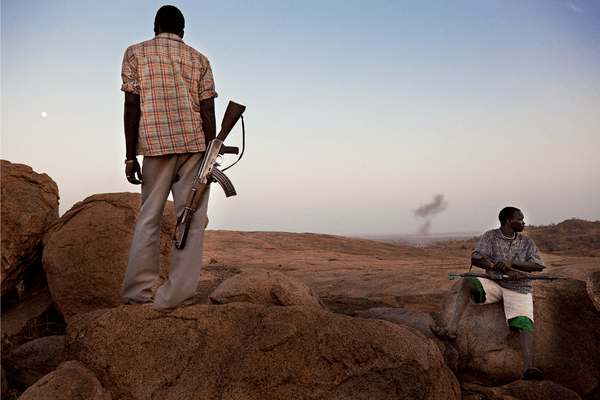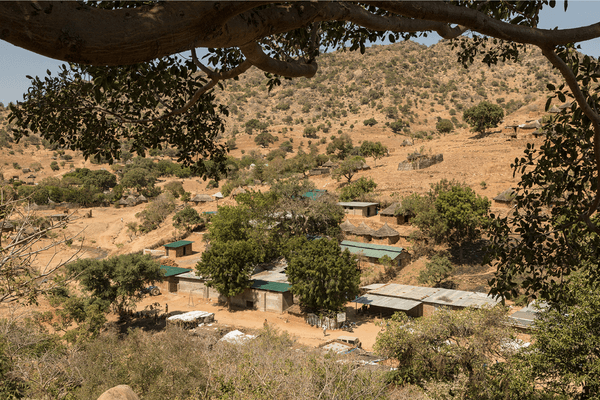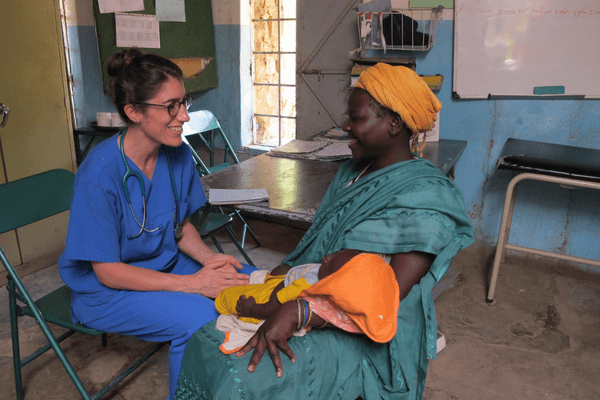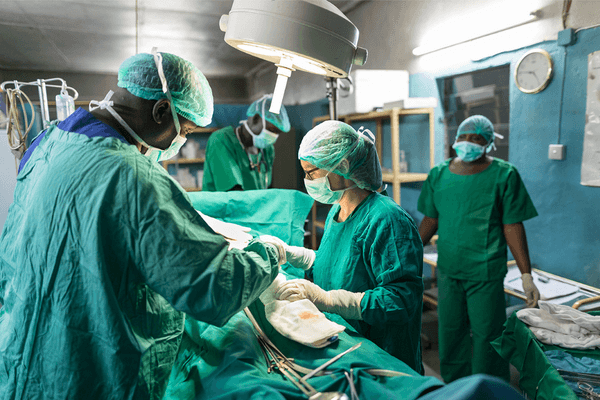25 Years of Medical Care in the Nuba Mountains
Cap Anamur has been working in war and crisis zones for over 40 years. Since 1997, we have continuously operated a hospital in the south of Sudan. This is the longest project we have been involved in since our foundation. Our work includes providing medical care to people in the Nuba Mountains who are suffering from decades of civil war.
For decades, Sudan has been the scene of armed conflict between the official government and rebel groups. The secession of an independent South Sudan from the North in 2011 intensified the fighting, especially in the border province of South Kordofan. The civilian population suffers most from the fighting between rebels and government troops, fleeing their home villages that are often under fire and seeking shelter in the caves of the Nuba Mountains. However, lack of food, low water reserves and poor medical care, quickly turn life in the mountains into a struggle for survival.

Cap Anamur has been running a hospital in Sudan since 1997
Cap Anamur decided in 1997 to help the people in the Nuba Mountains despite the prevailing civil war and constant armed conflicts. This is because there was no medical care for the approximately 1 million people living in this region.
Initially, old buildings in the small town of Kauda were used as a hospital. However, these were subjected to constant aerial bombardment. That is why a new hospital was built at a better protected location, in Lwere. In the beginning, the hospital consisted only of mud huts, which were expanded into stable and increasingly modern buildings over the long course of the project.
In the first years of our project activities, all required goods had to be brought to the remote Nuba Mountains on foot. After all, the region is still difficult to access to this day. In the meantime, we are able to bring the required materials, such as medicines, medical equipment, building materials or other relief supplies to our location with vehicles. However, even today we need several weeks to manage the transport.

Expansion of medical care
In the beginning, we were only able to care for people in the hospital in Lwere, but over the years we have significantly expanded our radius of action. With several health care outposts within a radius of 150 kilometers, we were able to provide basic health care for a large part of the population in the Nuba Mountains. As a result, we have built and operated healthcare facilities in a total of 11 locations over the 25 years. Currently, we operate at three other locations in addition to our hospital in Lwere. We have handed over all other facilities to local staff so they can continue to operate independently.
With a steadily increasing number of patients, since the beginning of our work, we have provided care for up to 250,000 people annually during some years. Cap Anamur treated a total of around 3.35 million patients.
In the early days, there was a very high infant and maternal mortality rate in the Nuba Mountains due to a lack of medicines or vaccinations. That’s why we initiated a vaccination program at a very early stage. This was met with a very high level of acceptance among the population, with the result that diseases such as measles, polio and tetanus no longer play a role.

Training of local employees
Due to the war, there has been virtually no schooling and even fewer educational opportunities in the Nuba Mountains for years. Therefore, we had great problems finding skilled staff for our hospital and health care outposts. We started training personnel ourselves. During the day, the practical part of the lessons took place directly on the patients in the hospital, followed by the theoretical part in the evening, when it was no longer quite so hot outside. Today, we have a great team that is highly trained thanks to the well-trained and patient men and women from Germany.
Housna started as a cleaner at the hospital in Lwere. While she started out sweeping hallways, over time she has shown herself to be very adept at recognizing illness and dealing with patients. Our team took the young woman into training. Today, Housna manages consultations for the sick and pregnant women at the hospital.
Joseph approached our team on his own and asked for work or training. The young man quickly proved to be inquisitive, extremely studious and resilient. He also brought a special interest and talent for operations. Over the years, Joseph was trained and educated by the various German surgeons who had come to the Nuba Mountains for Cap Anamur. Today, Joseph performs many surgeries on his own and every year German specialists come for a few months to train him according to the latest standards.
To date, we have trained around 300 employees. Many have been with us for years, some even since we began working in Sudan. We currently employ 135 people and are constantly training them through dispatched medical professionals.

The Hospital in the Nuba Mountains – a Success Story
Our hospital in Sudan has been one of our success stories since our inception. Through our extensive range of services, the various health outposts and our tireless team, we have significantly improved medical care in the Nuba Mountains. Children no longer have to die of malaria, operations and vaccination campaigns can be carried out regularly, and mothers can be accompanied during pregnancy. Our work is more important than ever and an essential part of life in the Nuba Mountains.
The latest developments in Sudan keep raising hopes for peace. Until this occurs, we will continue our work so that life at our project site will soon have such solid structures that the people there will no longer be dependent on our help.

